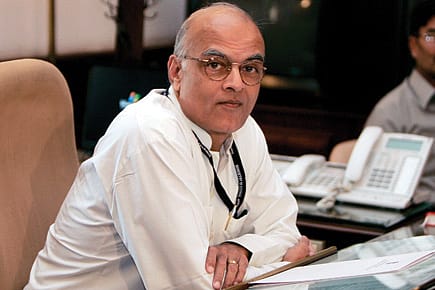Thanks to CAA, We Stand Isolated in the World, Says Former NSA

Former National Security Adviser Shivshankar Menon has criticised the Centre for its series of actions — including a controversial amendment to India's Citizenship law — that have led to the country's rapid isolation in the international diplomatic scene. Menon, who was also former foreign secretary, regretted that the government's effort, lately, has been to "hyphenate our image with Pakistan in a fundamental way, as religious driven and intolerant".
Menon, a distinguished career diplomat whose expertise extends to atomic energy, disarmament policy, China, subcontinent and India's ties with global powers, said on January 3 at a press conference in Delhi that, "We are increasingly isolated". The 70-year-old added that there has been no meaningful international support for these actions (including the Citizenship Amendment Act) apart from a handful of lawmakers from extreme right-wing parties abroad.
He went on, "If you look at what is happening abroad, the list of critical voices (against CAA) is quite long. From French President Emmanuel Macron to Mrs (Angela) Merkel of Germany to the UN High Commission for Refugees to high-profile visitors (heads of states and top diplomats to this country) who would normally be polite are all critical (of the CAA)." Menon was speaking at the press conference organized by the social organisations Constitutional Conduct Group and Karwan e Mohabbat to discuss CAA and National Population Registry (NPR).
Ruling party leaders have maintained that CAA is meant to redress the errors of Partition of India in 1947 and address religious persecution, but their opponents say that the amended law discriminates against Muslims and is therefore anti-constitutional. The country has been wracked with protests mostly led by students ever since CAB was passed and made into a law last month.
Openomics 2026: Continuity and Conviction
06 Feb 2026 - Vol 04 | Issue 57
The performance state at its peak
Menon reminded the packed crowd that UNHCR has condemned the CAA, calling it fundamentally discriminatory in nature. "But it is all the cumulative effect of the series of actions (including the revoking of article 370 in Kashmir about which UNHCR expressed extreme concerns) that attracted criticism." UNHCR had also urged that India rapidly restore civil liberties that are completely being denied to the people of Kashmir.
The highly decorated diplomat was also critical of India skipping a meeting with US lawmakers, including the chairman of the US House Foreign Affairs Committee and others. The Indian foreign minister cancelled the meeting because Congresswoman Pramila Jayapal, who was sponsoring a resolution on Kashmir in the House of Representatives, was part of the meeting.
We seem to know that we are isolated, Menon noted. "Rather than meeting and (trying to) rebut those charges (against India), we chose to duck it," he rued, emphasising that even Presidential candidates for the next US polls have spoken out on these issues and against India. During his stellar career, Menon, who is from a family of highly successful diplomats, had played a pivotal role in the signing of the Indo-US nuclear deal.
He also lashed out on the Centre for disregarding India's long-held tradition of respecting international laws as regards refugees and discrimination. "For those who think the law is an ass, it doesn't matter because (these) international laws cannot be enforced (on any country)."
He urged the government to consider the political and other consequences of being perceived as violators of international law and not keeping our word. Noting that public opinion on India abroad has shifted in the past few months, he said that even our friends have been taken aback. Friends like Bangladesh are saying let them fight among themselves, he averred. "Is it what we what? If this is what our friends think, what would our adversaries be thinking?" International media and cultural figures have been unequivocally critical of India's new Citizenship law and frequent internet shutdowns and reported police excesses in the wake of the protests.
Dwelling upon investment to the country, he said, "Investment is an act of trust. A faith in the future. Our ratings have declined … it is one thing to go it alone in pursuit of national goals as we did in 1971, but then we had global opinion on our side (back then). It is quite another to do so in pursuit of sectarian, divisive and party political goals as we seem to be doing now." The central government, for its part, denies any discrimination in the new law towards any religious community.
Menon is of the view that what the world thinks now matters to India more than ever. "Eighty percent of our imports are maintenance imports. We depend on the world outside for energy, capital, technology, markets, essential raw materials and much more," said the diplomat who had served in the past as High Commissioner to Pakistan and Sri Lanka and Indian ambassador to China and Israel.
Therefore, he warned, disengagement with the rest of the world or going it alone is not an option. "But we seem determined with actions like these to cut ourselves out and isolate ourselves," he said.
